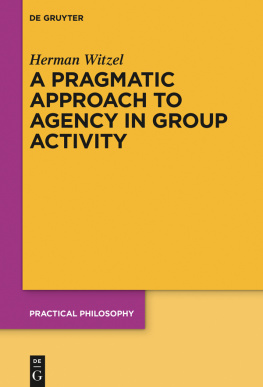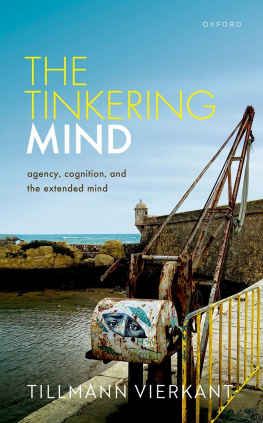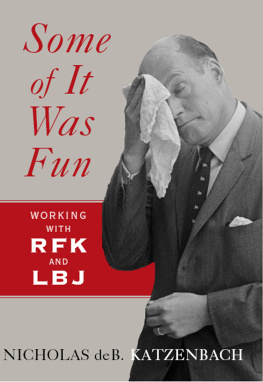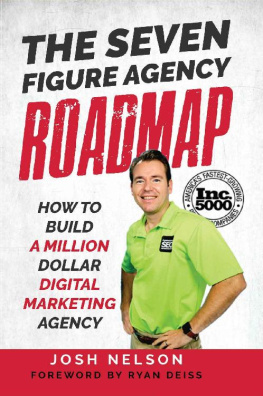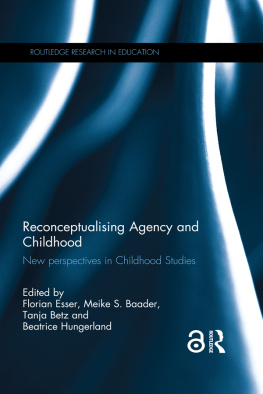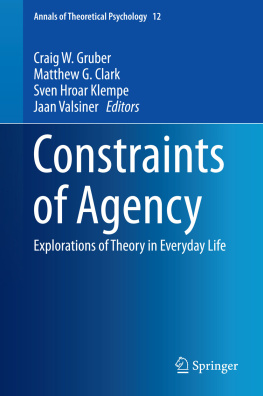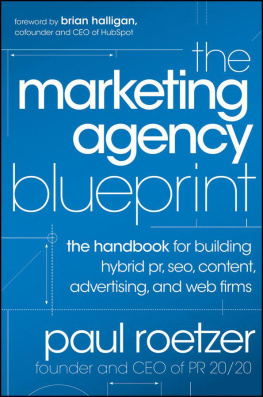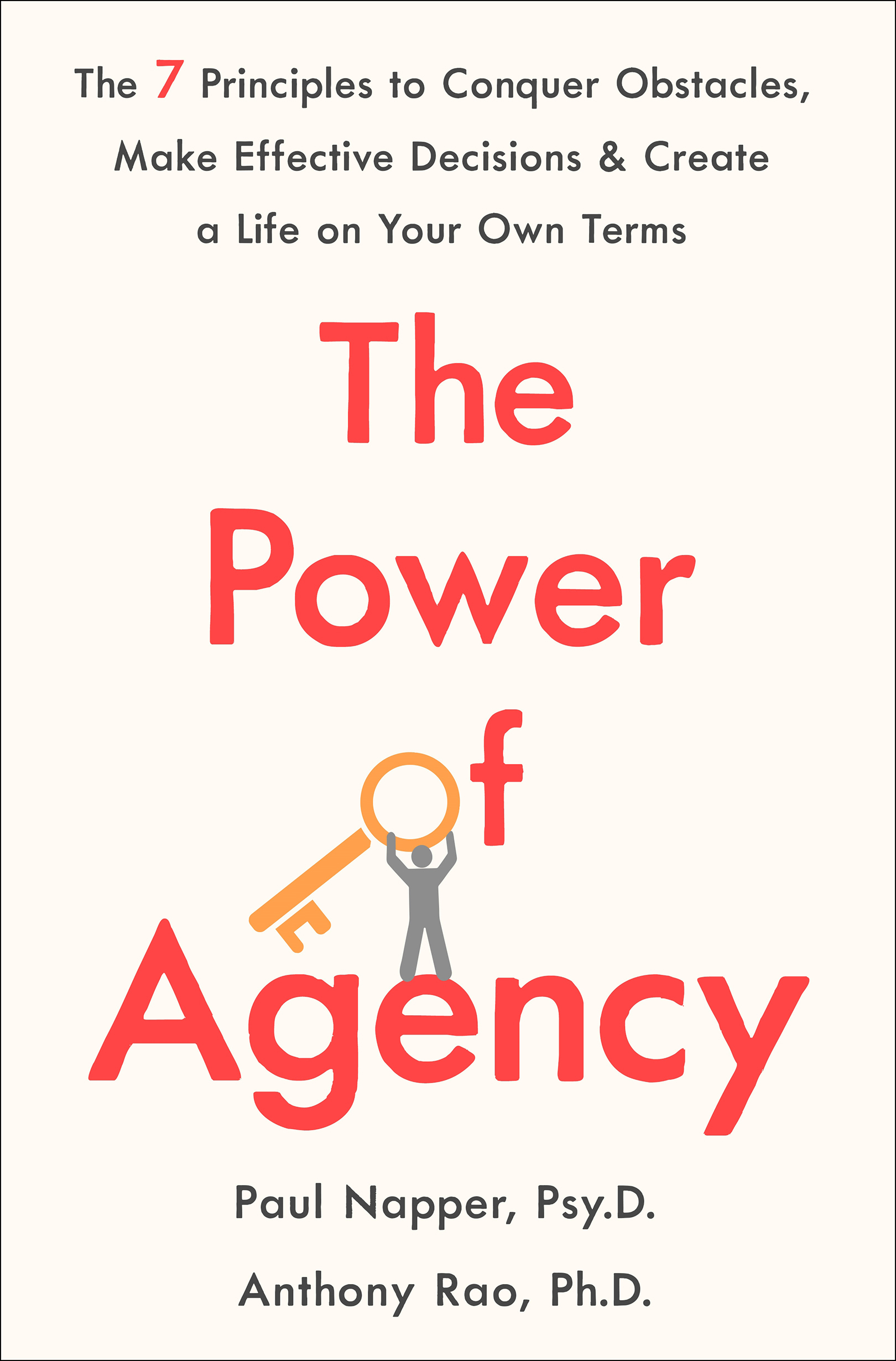Well start with two simple premises: 1) Most people these days feel overwhelmed by life, and 2) this feeling prevents them from making decisions, acting on them, and doing the things necessary to live the lives they want to lead. In short, they feel stuck.
If these premises apply to your life, we are confident we can help you. The combination of principles put forward in this book have proven tremendously effective for people just like you. Howeverand it is a big howeverits quite possible that the burden of reading an entire book and adopting a series of principles, not to mention thinking about the time and energy required to do these things, will only add to your sense of overwhelm.
1.You are under no obligation to read this book.
2.Should you decide to read on, you are under no obligation to finish.
3.Should you finish, you are under no obligation to adopt all seven principles we recommend.
These three points are all another way of acknowledging something you have but may feel youve lost: agency. Our mission is to help you find it.
The Age of Anxiety and Overwhelm
Leslie and Josh entered the office and sat down on two chairs placed roughly parallel across from the therapist. They thought they were there to fix their son, whod recently begun acting out at school.
The therapist began by asking about their daily routine. Leslie launched into a description of that morning. After an hour spent getting ready for her part-time job (which was part-time in name only), she woke up her three boys. Tired and irritable, they resisted, and it took too long to get them all started on their days. Soon, texts from coworkers began flashing on her screen, reviewing the details of an essential meeting that would begin only an hour and a half lateran important customer was threatening to jump ship. She counted on having a half hour that morning to prepareshed been too exhausted to do it the night before.
Somehow, as this thought was occurring, her mind had performed the complex calculation of what had to happen and in what order to get everyone fed and out the door so that she could arrive at her meeting a full five minutes early. Lunches had to be made. Book bags, instruments, and homework had to be located and packed up. Breakfastthe most important meal of the day as most guilty parents remind themselveshad deteriorated from fresh fruit and pancakes on Monday to peanut butter smeared on once-fresh bagels later in the week.
Amid all of this, the boys, sensing a vacuum, grabbed a few more minutes of screen time instead of putting on their shoes. Still, as was usually the case, shed managed to get everyone where they needed to go on time, including herself to work, but never without the sense that the day was on the edge of being a minor disaster before it had even begun.
Recalling these details, Leslies arms tightened across her chest. Her voice, clipped and fast-paced, now rose, weariness turning to anger as she transitioned to her husbands performance, or lack thereof, on the average morning. She refused to look at him as she described his ability to float above the morning scrum.
Josh, for his part, assumed the alienated grimace of the perennially misunderstood and underappreciated as the room now looked to him. He sighed wearily, defeated, as he began to defend himself. He was overwhelmed, he said, running his business. His workdays started early and ended late, and still he never felt as if he was doing everything he needed to. He was having to travel more than ever to stay connected to his customersnever mind doing the important work of trying to sign on new ones. When he got home, he was spent. It was hard to be present with the kids, and most of his and Leslies time was taken up by trying to get on top of everything, keeping the house running and getting it set up for yet another day. And each day, every day, it began again.
Leslie and Josh eventually returned to their sons struggles at preschool. Left hanging in the air, though, was a much bigger problem.
What Were Hearing
One of us (Anthony) is an experienced child and family psychologist (and the therapist who worked with Leslie and Josh), and the other (Paul) is a management psychology expert who helps business leaders improve their performance. We work with different people who arrive at our doors seeking to tackle challenges and work toward goals in very different realms of life, from successful executives to stressed-out parents like Leslie and Josh. And yet weve been struck in recent years by a significant and troubling commonality in the way people from all walks of life describe the things that compelled them to seek a coach or therapist:
They feel overwhelmed by life.
They struggle to make choices and decisions.
They often feel stuck, adrift, or thwarted.
When we drill deeper, they often describe a burgeoning insecurity or anxiety, the source of which they cant quite identify. Those working full-time watch their calendars fill up months in advance, and those with children have a second and similarly demanding calendar. All talk about losing the power to cope with the daily flood of demandsemails and the constant interruptions from electronic devices.
Many report feeling unhappy with where their careers have taken them (note the passivity in this description) but feel too overwhelmed to do the hard work of figuring out how to get to a better place. And it isnt just adults. Children and teens have also become captive to a destiny they havent chosen. By middle school, they already feel theyre under the gun to achieve, to build rsums. A seventeen-year-old high school senior neatly summarized what so many of us are feeling:
Nearly every minute of my day, everything I do isnt what I care about.
When you listen closely to what people are saying, you hear deeper problems that, when viewed from a psychological health perspective, are alarming.
Increased isolation and social disconnection permeate their storiespeople tell us that they find fewer opportunities to connect with the people they care about. They cant find the time to visit friends, be with spouses, or check on parents or extended family. Spontaneous, enjoyable social moments are rare.
And we hear mounting complaints about a loss of freedom to explore new things or do the things that make people feel energized and fulfilled. We hear unsettling phrases about a lack of real humanness in peoples lives:
Everyone is distracted. My spouse is lost in his own world. My friends seem like they are just going through the motions.
Older people are observing noticeable changes in their communities. Gary, a pastor in Minnesota, described how his congregation seems constantly harried and on edge. People no longer linger after church and rarely connect outside of Sunday mornings as they used to. Further, his congregants seek out his help much more than in years past. While he loves the counseling part of his work, he wonders why people are having so much more trouble coping. This wasnt how it was just ten or so years back, Gary observed. People seemed to be more self-reliant then, but now they seem more lost. They arent sure what to do. We asked Phyllis Schimel, a licensed social worker, what shes observed among the New Yorkers who come to her psychotherapy practice. Phyllis has been seeing patients for six decades, and she, too, notes an alarming trend. Ive seen the pressures climb over the last few decades, theres no doubt, Phyllis told us. Its a part of life now. Things are faster. They really started accelerating in the 80s. Its not going to go away. Were in a race to adapttrying to catch up constantlyand the effects are significant on our body and mind.


